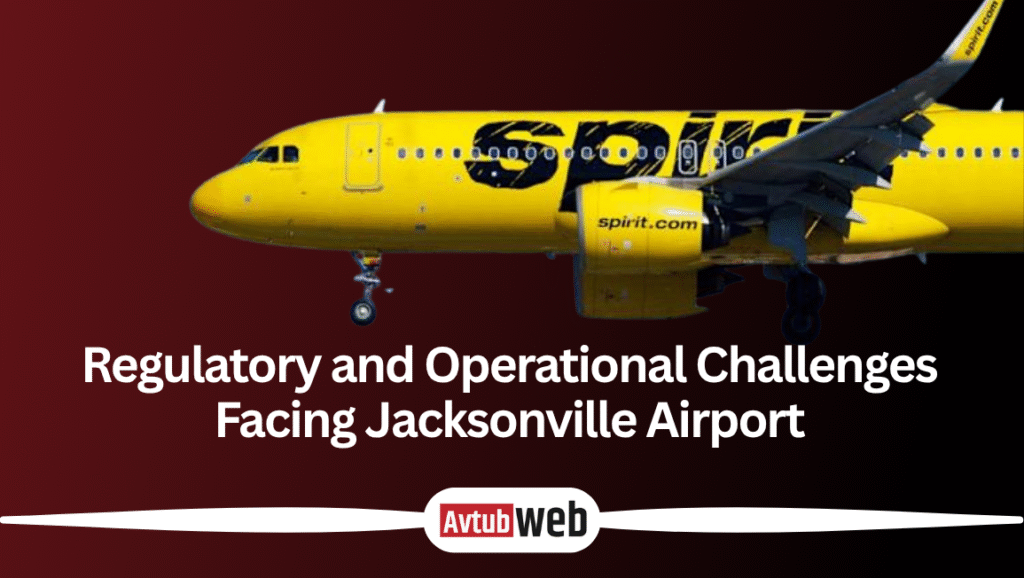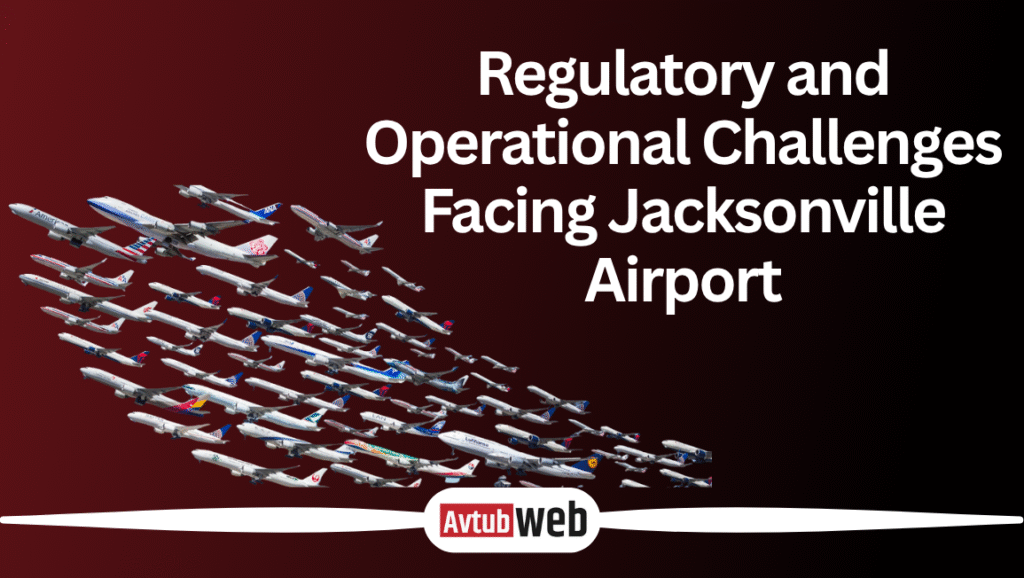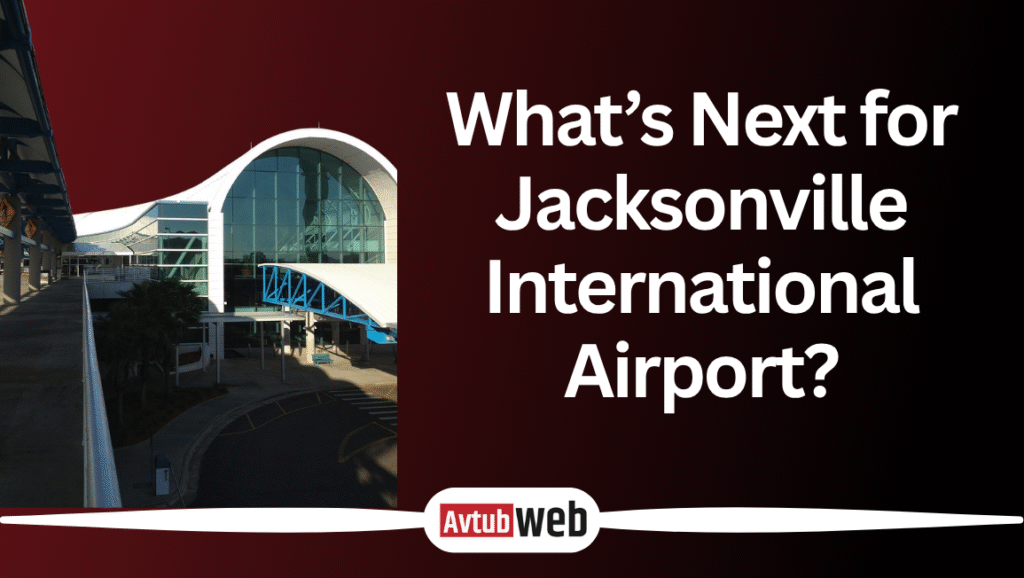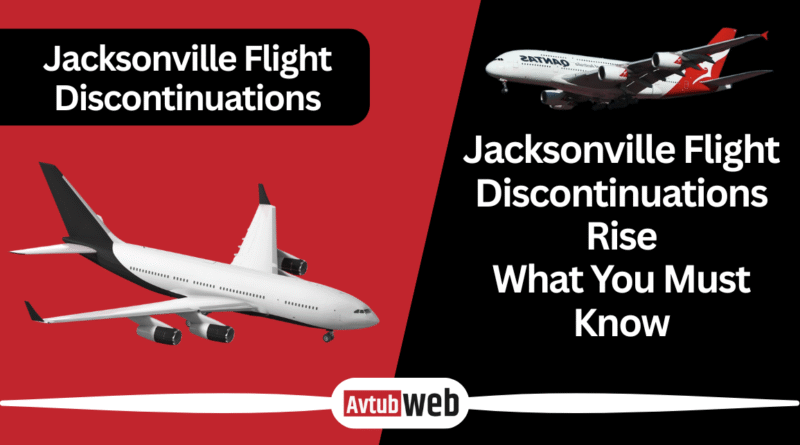Jacksonville Flight Discontinuations Rise—What You Must Know
This guide on Jacksonville flight discontinuations examines why some nonstop flights are being discontinued, what’s behind the change, how it affects travelers, and what options remain. You’ll learn about drops like JetBlue Fort Lauderdale and Southwest Atlanta, how low passenger demand and rising operational costs shape airline route reevaluation, and what alternatives, including alternate airports and smarter booking, can help you adapt.
What Are Jacksonville Flight Discontinuations?
Jacksonville flight discontinuations refer to permanent or indefinite pauses of nonstop flights from Jacksonville International Airport. These aren’t short-term delays or temporary schedule changes. Instead, they stem from airline decisions shaped by shifts in travel habits and network optimization. This affects routes that once offered direct service, making planning more complex for flyers in the region.
Current Status and Overview of Discontinued Routes
In spring 2025, a few confirmed route cuts hit JAX. JetBlue terminated nonstop flights to Fort Lauderdale on April 1, 2025. Shortly after, Southwest ended its Jacksonville to Atlanta service on April 8, 2025. Allegiant pulled the Cleveland connection, and Breeze stopped flying to Westchester County, NY. Air Canada paused its seasonal service to Toronto for the winter of 2024–25 but resumed in spring. These cuts reflect adjustments in airline planning based on shifting demand and costs.
Key Reasons Behind Jacksonville Flight Discontinuations
Airlines are reevaluating routes. A mix of softer demand, the need to reduce rising operational pressure, and flight network optimization is driving change. Seasonal adjustments add another layer, especially on routes like Toronto, where demand dips in winter. Airlines respond by focusing capacity on hubs that deliver better returns.
Declining Passenger Demand and Market Shifts
Passenger numbers at JAX dropped about 3 percent in March 2025 compared to a year earlier. That fall in traffic makes nonstop routes harder to justify. Travelers are flying out of larger hubs more often, changing airline route strategies.
Rising Airline Operational and Cost Pressures
Fuel price impact, crew and maintenance costs climb steadily. Airlines are under pressure to cut expenses, especially on routes that don’t fill enough seats to cover higher operational costs. These pressures drive tougher route decisions.
Airline Network Optimization and Route Prioritization
JetBlue cited network realignment when ending its Fort Lauderdale flight, choosing to shift aircraft to higher-yield cities. Southwest’s Atlanta cut came as part of a broader strategy to expand service to places like Nashville while reducing overlapping connections.

Regulatory and Operational Challenges Facing Jacksonville Airport
While not the main reason, limited air traffic control capacity and infrastructure constraints can influence airline planning. JAX may face higher scrutiny when airlines evaluate low-yield routes across strained airport systems.
Impact on Jacksonville Travelers and Flight Options
Losing nonstop flights means more travelers must rely on connecting flights, which can mean extra time and planning. Direct travel becomes harder when fewer nonstop options exist.
Reduced Connectivity and Longer Travel Times
Without those direct routes, even short trips now require connections. That change adds both scheduling challenges and inconvenience.
Higher Airfares and Limited Airline Choices
Route cuts reduce competition. When budget carriers pull out, legacy airlines dominate, often resulting in higher fares on remaining routes.
Disruptions for Business Travelers and Corporate Travel Plans
Companies that valued quick, direct access to markets like Fort Lauderdale or Atlanta now need more time in transit. That can affect meetings and logistics.
Effects on Tourism and the Local Hospitality Industry
Fewer nonstop options may deter visitors from attending events or staying in Jacksonville. That loss ripples into hotel bookings, restaurants, and local attractions.
Broader Impact on Jacksonville’s Local Economy
Each route supports jobs and income. Cuts to service risk slowing economic activity tied to travel, such as meetings or tourist spending, making robust connectivity important for growth.

Airport and Community Strategies to Attract More Flights
JAX leaders are fighting back. They offer incentives, push for infrastructure, and engage airlines with data on local demand.
Jacksonville Aviation Authority (JAA) Initiatives
JAA offers waived fees and marketing help to airlines that consider routes here. Plans for Concourse B could bring six new gates, showing a commitment to improving JAX connectivity.
Regional Collaboration with Neighboring Cities and Airports
Efforts include working with airports in Daytona Beach, Orlando International, and Savannah/Hilton Head to present Jacksonville as part of a regional option for carriers.
Airline Incentives and Partnership Commitments
Some airlines are showing interest in future routes or resuming service. That includes seasonal return of Toronto flights and exploration of new leisure routes by carriers like Breeze or Allegiant.
Travel Alternatives for Jacksonville Residents
Given limited nonstop flights, alternatives include shifting to nearby airports and using smarter booking strategies.
Using Nearby Airports for Better Connectivity
Alternate airports like Orlando International, Savannah Hilton Head, and Daytona Beach provide more nonstop destinations. Driving a couple of hours may be worth better schedule or price options.

Smart Booking and Flexible Travel Strategies
Flexible travel dates and passenger flexibility help travelers find better deals. Watching for connecting flights and adjusting plans can reduce cost and travel time.
Case Study: JetBlue’s Fort Lauderdale Route Discontinuation
On April 1, 2025, JetBlue ended direct service from JAX to Fort Lauderdale. That meant fewer nonstop options and pushed travelers to alternate routes or airports. JetBlue cited network shifts to more profitable routes as the reason.
Industry-Wide Trends Affecting Jacksonville Flights
Big-picture shifts are reshaping the sector and affecting mid-size airports like JAX.
Shift Toward Major Hub Airports
Airlines favor major hubs for better scale. That makes smaller airports more vulnerable to cuts on marginal routes.
Decline of Regional Carriers and Smaller Routes
Smaller routes, especially those run by regional or seasonal carriers, are more likely to be cut during economic or demand shifts.
Sustainability and Environmental Considerations in Route Planning
Some airlines weigh carbon emissions and efficiency, especially on short routes. That influences decisions when routes don’t deliver enough yield per seat.

What’s Next for Jacksonville International Airport?
JAX is preparing for a bounce-back. With infrastructure upgrades and outreach, it hopes to attract restored or new nonstop flights, including seasonal international routes.
Frequently Asked Questions (FAQs)
1. What does “Jacksonville flight discontinuations” mean?
It means certain nonstop flights from Jacksonville International Airport (JAX) are no longer being offered. These are permanent or long-term cuts, not temporary schedule changes.
2. Why are nonstop flights being cut from Jacksonville?
Airlines are making changes due to low passenger demand, rising operational costs, fuel prices, and shifting travel habits. They’re focusing more on routes that bring in higher profits.
3. Which routes have recently been discontinued at JAX?
Some examples include JetBlue Fort Lauderdale, Southwest Atlanta, Allegiant Cleveland, Breeze Westchester County, and seasonal Air Canada Toronto service.
4. How does low passenger demand affect flight availability?
When fewer people book seats on a route, the airline earns less money from that flight. If it doesn’t make enough to cover costs, the route may be dropped.
5. What role do rising operational costs play in these cuts?
Airlines spend a lot on fuel, maintenance, and staff. When costs rise, they often cut routes that aren’t performing well to save money.
6. Are seasonal adjustments common for Jacksonville flights?
Yes. Some routes only run during busy seasons. If demand falls during certain months, airlines may pause the service and restart it later.
7. How does airline network optimization affect JAX?
Network optimization means airlines are reworking their schedules to focus on more profitable cities or hubs. JAX sometimes loses routes when this happens.
8. How will fewer nonstop options affect my travel time?
You might need to take connecting flights instead of going directly. This can add hours to your trip and make schedules less convenient.
9. Will ticket prices go up because of route cuts?
Often yes. Fewer airlines competing on the same route can lead to higher fares, especially when budget carriers leave the market.
10. How are business travelers affected by these changes?
Business travelers may face longer trips and more layovers, which can affect meeting schedules and productivity.
11. What impact does this have on Jacksonville’s local economy?
Fewer flights can reduce tourism, event attendance, and business visits. This can hurt hotels, restaurants, and other local businesses.
12. Is the Jacksonville Aviation Authority doing anything to fix this?
Yes. They offer incentives to airlines, improve airport facilities, and work with tourism boards to attract new flights.
13. Can I use other airports if my preferred JAX route is cut?
Yes. Many travelers use Orlando International, Daytona Beach, or Savannah Hilton Head airports to find better options.
14. What booking tips help when fewer flights are available?
Book early, be flexible with travel dates, and check different airports for the best fares and schedules.
15. Could discontinued routes return to Jacksonville in the future?
It’s possible. Airlines sometimes bring back routes if demand improves or if operational conditions change.
Conclusion
Jacksonville flight discontinuations reflect changing travel habits, rising operational costs, fuel pressures, and airline network optimization. Cuts like JetBlue Fort Lauderdale and Southwest Atlanta show the impact. Yet, JAX connectivity can rebound if airport leaders, businesses, and flyers support emerging routes and adapt with travel alternatives. Jump to alternate airports, stay flexible with bookings, and help shape JAX’s return to growth.



